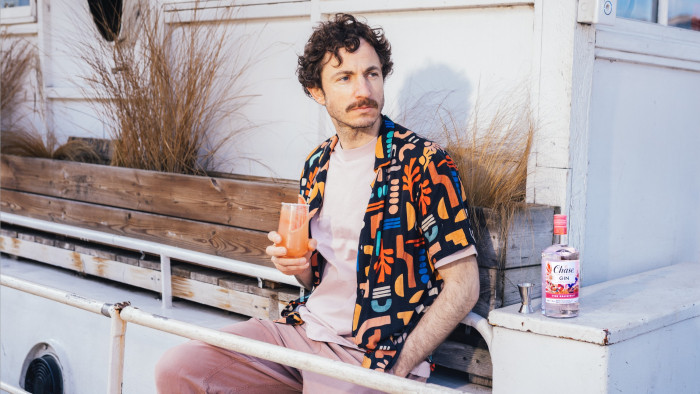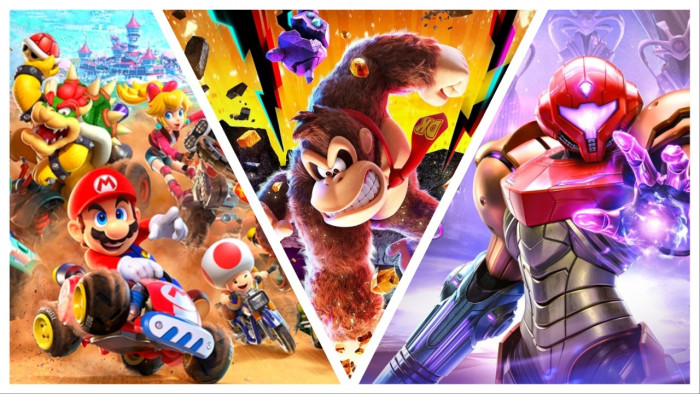He may seem like the sort of man who’d be most at home in the glow of a laptop screen, but JJ Abrams quite fancies a world without electricity. In his new TV show Revolution (which lands on Sky1 next week), the power goes out everywhere – and then doesn’t come back on. “It was [an act of] wish-fulfilment, being able to turn off all the noise,” notes the man who, as the creative force behind both Star Trek and Star Wars, arguably marshals one of the galaxy’s biggest energy bills.
Having been bestowed the keys to the Millennium Falcon for the seventh chapter of the world’s most famous space saga, but the 46-year-old is also in the middle of finessing the second instalment of his other vastly popular intergalactic franchise, Star Trek Into Darkness. So you’d be forgiven for imagining that he’d be up all night toiling under the weight of fanboy expectation resting on his shoulders.
But JJ doesn’t work evenings. Or weekends. He does 9-5 like the rest of us. That’s not to say that his daily grind is full of dull spreadsheets and hacked-off emails. Instead, he spends his days – when he’s not donning the director’s cap on-set – at his production company Bad Robot, pondering the God-like quandary of conceiving various visions of humanity’s future. As well as Revolution’s near-present world struggling for survival in the face of a complete return to pre-industrial life and the altogether more technologically reliant life on board the Enterprise, his next move is to figure out just how to move Han Solo, Leia, Luke – as well as the Dark Side – on from Return Of The Jedi in Episode VII.
But there’s a slight problem. Stormtroopers are on hand to shut down any addressing of the Death Star-shaped elephant in the room. Which isn’t to say that we didn’t employ our best Jedi mind tricks. Who can blame us?
You’re executive-producer on Revolution. What’s the difference between producing and directing? Do you have two different modes?
They’re very different jobs. When you’re directing you’re actually on the floor, on the stage every day, figuring out where the camera goes, setting up the scene, telling the actors what to do. You’re really telling the story through whatever point of view you have. When you’re producing, your job is to support the project, the writer and the director. So with a show like Revolution, Eric Kripke [creator and writer] came to us with this idea that we thought was very compelling, and our job was to help him get his show on the air, and do what we could to help with story, casting and putting the crew together.
Do you think that, as you’re dealing with tech-heavy versions of the future, Revolution’s back-to-nature premise was what attracted you?
That was part of the appeal: [losing] the seductive instant information that we carry in our pockets and are therefore just staring at most of the time. For me, part of the fun of it is thinking about the ways in which things could be more humane. And at the same time there is the cautionary tale of ‘What if that happened? How would I survive? How would I communicate with friends? How would I travel?’ The reliance that we all have on electricity and what it brings us is a very tenuous thing. We rely on this thing to a point of not being able to function without it. That’s the beauty of Eric’s premise.
And do you think you’d be able to cope, or would you sit there with a big tub of ice cream and give up?
[Laughs] Given that the ice cream would melt pretty quickly, I’d maybe eat it first. And then try to find survivalist friends and ask them for advice.
From Lost and Star Trek through to Revolution, you are single-handedly leading the revitalisation of sci-fi. How many projects are you working on at the moment?
We have a number of different movies in development and a handful of shows. I don’t really consider any of them overtly sci-fi, apart from, I suppose, Star Trek. I don’t consider Star Wars sci-fi. I feel like some of the things we’re working on – such as the Alfonso Cuarón show that we’re doing now [Believe] – feature elements that are definitely pushing the limits of what’s real, but certainly nothing that feels definitively sci-fi. A couple of things we’re working on are in different genres that might have elements of sci-fi, but they also have elements of comedy or romance. They’re just a bunch of fun movies that we’re working on.
Do you consider yourself a fanboy or do you do these projects based on the character element?
I’m a fan of certain genres and like anyone, I like all movies. My favourite movies are not in the sci-fi realm, but are more comedic or dramatic. But I’ve also always been a fan of anything that takes characters that I relate to and puts them in extraordinary situations, so those extraordinary situations could be considered ‘genre’.
Revolution recalls elements of old westerns. What were your influences?
The earliest memories that I have of sci-fi were probably the Fifties sci-fi movies they used to play on TV. That and maybe The Outer Limits, and The Twilight Zone is my favourite show. Those were really the things that first struck a chord with me. And as a kid, movies I saw in the theatre, such as Logan’s Run and Planet Of The Apes, that made me fall in love with the ideas of ‘what if’ – that sort of sci-fi vibe. But I guess TV was the first impact.
You manage to keep your hand in with TV projects no matter what massive film franchises you’re working on. Does the future still lie with episodic TV?
Sure. I would argue that, increasingly for the viewer, it’s going to be irrelevant if it’s a network or a website, on a TV, or a laptop, or a tablet. It will be a screen and on the screen there will be characters, and those characters will, like with any great movie or show, transport you. But the fact is there will be an evolution of distribution. The thing that concerns me most is what is being distributed. What’s amazing about television right now is that there’s so many more interesting risks to be taken, and exciting voices being discovered. Movies have become a polarised business: insanely expensive franchises that studios feel are more likely a sure thing, or much smaller, borderline independent movies. And I hope that will change and a sort of middle class of movies will return.
So you think TV is filling that cinematic void at the moment, then?
I do. TV is a place where you can spot some of the greatest stories being told, and time and again you think, ‘Wow, that would be great if it were a movie,’ and it certainly could be, and arguably should be. But TV is filling that gap.
You mentioned the massive franchises, and you’re in charge of two of the biggest around at the moment. What can we expect from the Star Trek sequel?
Star Trek Into Darkness is bigger and deeper than the first one. The scope of it, both emotionally and visually, is vastly larger. The great thing for me was to get to work with all of these amazing actors again. We had such an incredible time. It was so challenging, but in the best way. The movie is a far more exciting one. The action is insane, a lot of the movie takes place on Earth, and yet there’s a lot that doesn’t as well.
And what was it like having Benedict Cumberbatch join the cast?
Working with him was such a crazy joy. To see him in a role that is perfectly suited for his unbelievable presence was incredibly fun. Eric Bana did an amazing job in the first film, but our bad guy in this movie is a far more complicated, oddly relatable, intimidating force. And there’s not an actor you could imagine who could do it as well as Benedict did.
You co-exec-produced Revolution with Iron Man director Jon Favreau and he directed the first episode. Are you calling each other to check little details when you work on something such as this?
Jon and I have been friends for many years and we have wanted to work together for a long time. This opportunity was the perfect one for me to be able to work with him on a show where he could direct the pilot and set the tone and the visual style. Then I got to help out however I could. So, whether it was with the script, story, casting or in editorial, while I was shooting Star Trek, we were prepping and shooting the pilot. We would talk on the phone all the time, work on whatever was needed. But Jon is an incredibly accomplished and sharp director. We were lucky to have him.
And you gave him a few pointers when he and Shane Black were having a few script issues with Iron Man 3, didn’t you?
Actually this is funny, my work on Iron Man was really on the first one. Jon is someone who is in a circle of people that we all look to for opinions, help and advice. And he is certainly in that category for me. So I’m thrilled to have gotten to work with him on Revolution.
Given your current workload, do you have any free time?
Typically I’m at work. Luckily my wife works at Bad Robot too, so I get to see her during the day. We have three kids, and I don’t work during weekends, so I get to see them then, and I take them to school every day. I see them when
I get home. I wish there was more time to hang out with friends, but the truth is, the focus is family at weekends, and work during the week.
Before we go, we have to ask… how are preparations going for Episode VII? What stage are you at?
You know, it’s very early stages. We’re focusing on the re-launch of Revolution in the US, and finishing up the Star Trek movie. I look forward to talking to you about that down the line when I feel like I’ve got something to say.
Can you tell us any details about it?
I look forward to talking to you about that down the line when I feel like I’ve got something to say.
[The Empire descends to strike us down. But we shall become more powerful than they can possibly imagine.]
Revolution starts on 29 March at 9pm on Sky 1 HD and on the move with Sky Go
Latest
Related Reviews and Shortlists










